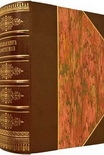The Threads of Magic by Alison Croggon (best books for students to read .TXT) 📗

- Author: Alison Croggon
Book online «The Threads of Magic by Alison Croggon (best books for students to read .TXT) 📗». Author Alison Croggon
She stared down at her violet syllabub, which was curdling in the heat. She had the strangest feeling of vertigo, as if an abyss were opening beneath her. For the past few years, she had studied the court and read histories voraciously, planning how she could take power in her own right and change everything for the better. But if she were forced into this marriage, she would never be a proper queen. She would be taken to a country she didn’t know to live with a man who terrified her. She didn’t have a choice. She had never had any choice.
If Georgette weren’t a princess, she wouldn’t have silk sheets or fancy dresses, and nobody would bow to her. She wouldn’t have to talk to simpering courtiers or listen to pointless gossip, or spend hours watching dull ceremonial processions with her wired lace collar sticking into her neck.
That didn’t seem so bad.
By the end of the meal, she had gathered her fears together and locked them up deep inside. She curtsied good night with her usual grace, offering her hand to King Oswald, her eyes modestly downcast so she didn’t have to meet his gaze. Her ladies-in-waiting escorted her to her chamber and undressed her. She lay in her silk nightgown between her silken sheets, scratching the itchy fleabites with blessed relief, and stared at the darkened ceiling.
No, she thought, I really don’t want to be a princess anymore. And I definitely don’t want to marry King Oswald.
I’ll have to become a proper queen.
WHETHER YOU HAD TWO LEGS OR FOUR LEGS OR wings, you had to stay alert in the dark alleys of Clarel. If you didn’t pay attention, someone else would, and attention here was almost always bad news.
As a rule of thumb, anything abnormal was a warning sign. A silence that was deeper than it should be, a shadow slipping past where no shadow should be, footsteps where feet had no business: those were the obvious things.
Harpin Shtum, scholar and gentleman scoundrel, was heading home from a profitable afternoon playing be-zique at the Five Tuns, not far from the Old Palace. He was as intimate with the streets of Clarel as anyone who had survived thirty-five years’ hard cheating, and thought he knew every variation of bad news that the alleys had to offer. But he had never seen anything like this before. According to the laws he had survived by, it couldn’t signify anything except trouble.
He squeezed his eyes shut and opened them again. Surely he hadn’t drunk that much brandy? A tipple, no more . . . But there it was, an impossible thing. In front of him, in the murky twilight, the air seemed to have a hole in it. He couldn’t think of any other way to describe it. Holes didn’t glow, though, and this one glowed: a dim greenish glare that illuminated nothing. He could see into the hole — or at least, it had a sense of depth — but he couldn’t see what was inside. Whatever it might be, it was moving, with a roiling motion that made him feel faintly queasy.
His feet told him to run, but Harpin’s curiosity overrode his instincts of self-preservation. The hole didn’t seem to be doing anything, and it gave an impression of complete soundlessness, as if it swallowed noise. He looked up and down the street. Nobody was about; otherwise he might have called them over to check that it wasn’t some strange trick his eyes were playing on him. Cautiously, keeping his distance, he walked around the hole. It wasn’t visible at all from behind, and from the side it was a mere flicker in his vision. He could only see it clearly from the front, just at the angle at which he had turned the corner.
He picked up a pebble and threw it at the hole, again keeping his distance. It didn’t land on the ground, as he had expected; it disappeared into the green space completely, as if it had been somehow sucked inside. He walked behind, where the hole was invisible, and tried his experiment again. This time the pebble fell to the ground. Then he returned to where he could see the hole and tried throwing in another pebble. Yes, it definitely vanished.
By now Harpin was fascinated. Gingerly, ready to spring back if anything happened, he reached out and touched the edges. Aside from a slight coolness, he felt nothing. He regarded the hole cautiously and reached forward again. Again, nothing. Perhaps it was humming slightly, just underneath the range of his hearing. It was almost as if, he thought, it were saying his name. No, that was silly. But he did have an intense desire to step inside the hole, a desire that was growing stronger with every moment.
“What in holy hell are you doing, Harp? I didn’t think you were that cut.”
The voice, ringing cheerily from behind him, made Harpin leap out of his skin. He had been so engrossed that he hadn’t heard footsteps. As he turned, he twisted his ankle and tripped into the hole. It flared so brightly that it cast bewildering shadows over the alley, and then seemed to fold itself up until it completely disappeared.
Harpin’s fellow card sharp Erasmus Quinn staggered, temporarily blinded, and blinked at the afterimages that hung in the darkness.
“Harp?” he said, suddenly much more sober. “Harp? Don’t play tricks on a man, Harp.”
Nobody answered. Erasmus peered around. It wasn’t completely dark yet, and he could see clearly all the way to the end. There was no sign of Harpin anywhere.
As Erasmus told some friends later, Harpin didn’t fall into the thing; it was like he was sucked in by some invisible force. “An irresistible force, gentlemen,” Erasmus said over his third gin, still trembling





Comments (0)